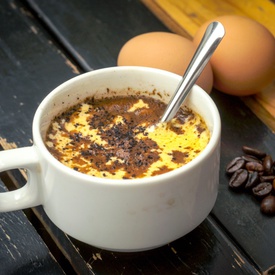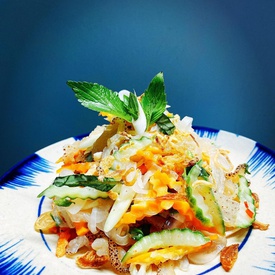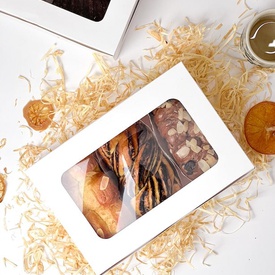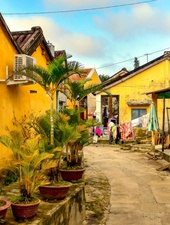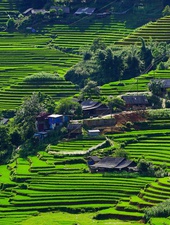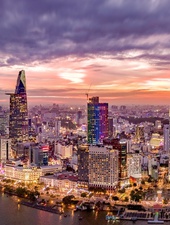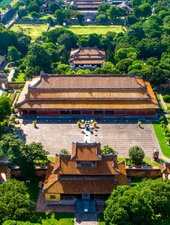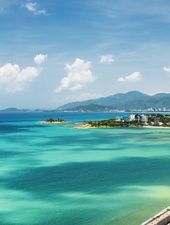Hanoi
High rise, fast-paced and neon-lit, Hanoi is as futuristic as it is historical
As you make your way to Hanoi in 2025, you will quickly observe the city’s dual nature: the blending of antiquity with modernity, tranquility with chaos, and tradition with innovation. The capital of Vietnam maintains a remarkable balance between preserving its rich historical charm and embracing contemporary influences from around the globe.
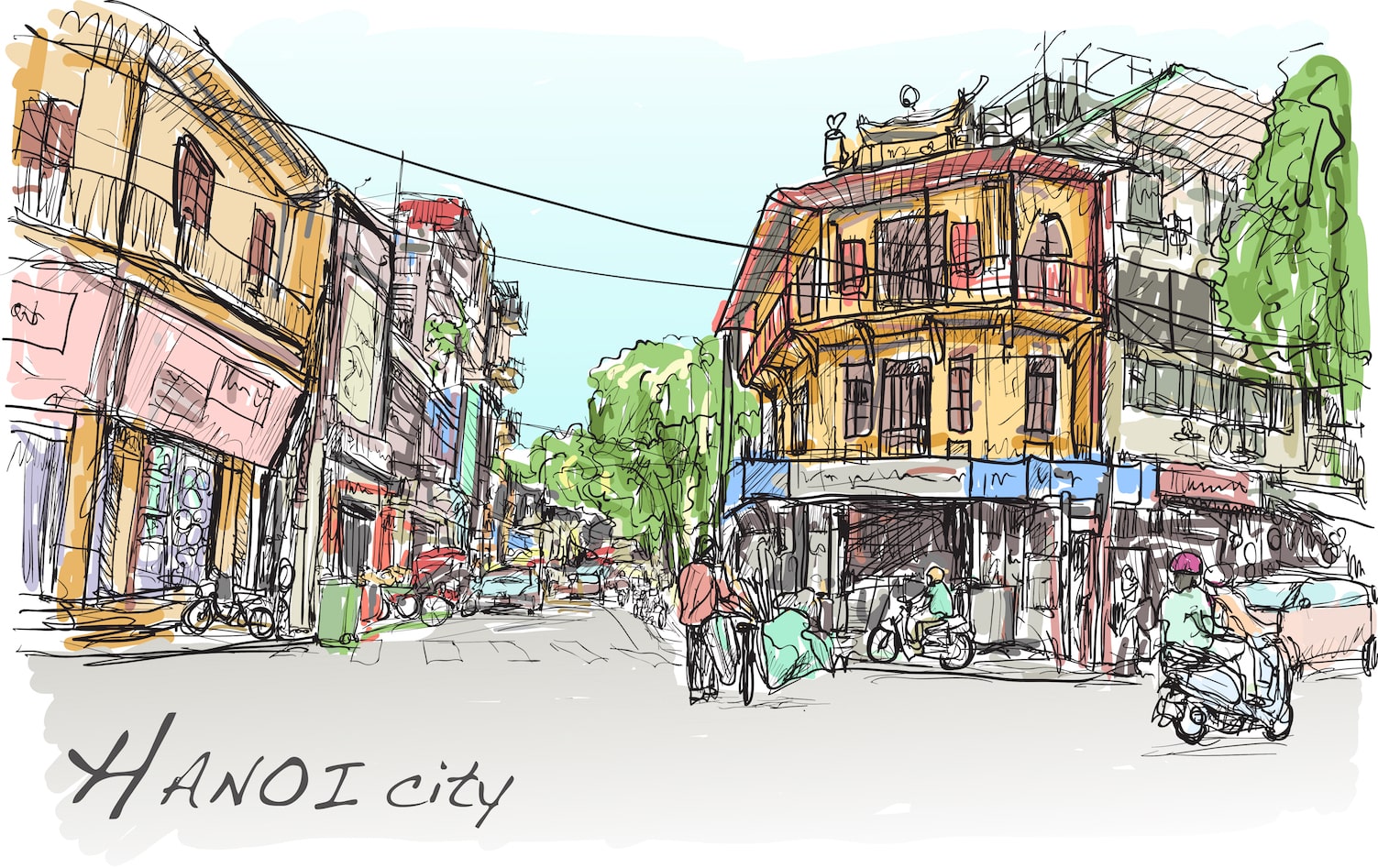
Hanoi offers a plethora of attractions to engage visitors during their stay, including meaningful visits to historical sites, delightful culinary experiences, immersion in the arts, and discovering local hidden gems. The beauty of this city is alluring and timeless, making it a destination you cannot miss when visiting Vietnam.
Best Time To Visit
Hanoi experiences four distinct seasons: spring, summer, autumn, and winter. Average temperatures can range from around 10°C during the cold winter months to 36°C in the peak of summer.
Spring (February to April) and autumn (September to November) are the ideal times to visit Hanoi, as the weather is pleasantly moderate. Spring marks a vibrant awakening, characterized by warm weather and clear blue skies. Travelers can enjoy various traditional activities that coincide with the Tet holiday, which celebrates the Lunar New Year.
The heavy rains of September provide a refreshing end to summer, making it another excellent time to stroll the central streets adorned with beautiful golden leaves.
No matter the season, Hanoi has captivating experiences waiting for you, whether it’s the bustling heat of summer or the cool nights before the festive season.
Learn more about Hanoi weather.
City Orientation
For most tourists, Hoan Kiem Lake and the nearby Old Quarter represent the essence of Hanoi. Nevertheless, the city has expanded to include several provinces, making it one of the largest and most populous metropolises in the world.
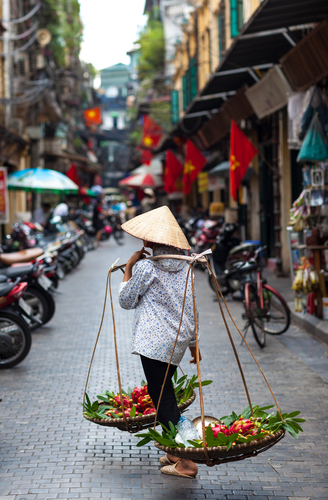 Hanoi Old Quarter - a blend of street vendors and flowing motorbike traffic
Hanoi Old Quarter - a blend of street vendors and flowing motorbike traffic
Most hotels, shops, cafes, and restaurants crowd the Old Quarter. This area is not only the oldest part of the city but also the most vibrant; for years, tourists have brought a flow of cultural fusion and influence. The young locals frequent the area for fun, while the older generations find nostalgia. Each street in the Old Quarter tells a unique story and has its own distinct atmosphere—appreciated best by those who have experienced it over time.
Just south of the Old Quarter lies the French Quarter, showcasing an array of Colonial and Indochine architecture, including landmarks like the Hanoi Opera House, the Museum of History, and the grand buildings lining Tran Hung Dao, Ly Thuong Kiet, and Hai Ba Trung boulevards.
If you have time to spare, consider visiting the Tay Ho district, home to many expatriates. This area presents a different side of Hanoi compared to the Old Quarter, featuring a mixed landscape of international cuisine, yoga studios, and boutique tailors offering oversized clothing. Tay Ho has increasingly become a trendy hub in Hanoi.
Major Attractions
Hoan Kiem Lake
Located in the heart of Hanoi, Hoan Kiem Lake is an iconic symbol of the capital, tied to many legends and historical narratives. This location is a favorite for both tourists and locals. In the early mornings, you can witness residents engaging in workouts or gracefully practicing t'ai chi by the lake. On weekend evenings, the surrounding areas transform into pedestrian streets, turning Hoan Kiem into the largest outdoor community space in Hanoi for social interactions, street art performances, traditional games, and cultural events.
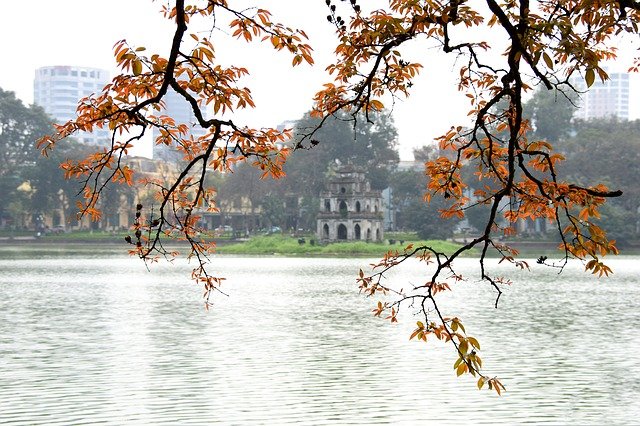 Image by Hà Phạm from Pixabay
Image by Hà Phạm from Pixabay
Temple of Literature
Established in 1070 during Vietnam's most prosperous era of Confucianism, the Temple of Literature was the first university in Vietnam, dedicated to honoring esteemed scholars and sages. Aside from its historical significance, this site also showcases authentic Vietnamese ancient architecture. If you visit during the Tet Holiday, you might experience the unique custom of seekers asking for calligraphy paintings from accomplished scholars, wishing for luck and peace in the new year.
Hoa Lo Prison
A visit to Hoa Lo Prison leaves a lasting impression. Built in the late 19th century, this historical site, originally named Maison Centrale, has witnessed the harrowing events of the Indochina War and the Vietnam–U.S. War. The preserved section now serves as a museum, featuring memorial artifacts and recreations of imprisoned life.
The Old Quarter
The Old Quarter is essential to understanding Hanoi's culture and is a must-visit area. Originally comprised of 36 artisan communities specializing in various crafts such as silver, bamboo, and textiles, some streets still maintain their traditional crafts, while others have evolved into vibrant dining and nightlife hubs that attract both locals and tourists. Walking through these streets during the day offers a glimpse of city culture, while nighttime immerses you in Hanoi’s lively atmosphere.
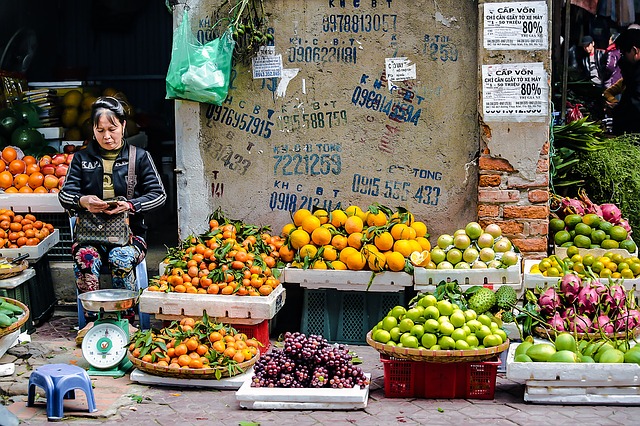 Image by Huỳnh Mai Nguyễn from Pixabay
Image by Huỳnh Mai Nguyễn from Pixabay
See more places to visit in Hanoi.
Where To Stay
As a bustling metropolitan city, Hanoi offers a wide range of accommodations to suit visitors’ needs, whether you’re seeking luxury in high-standard hotels or a more immersive experience in cozy homestays.
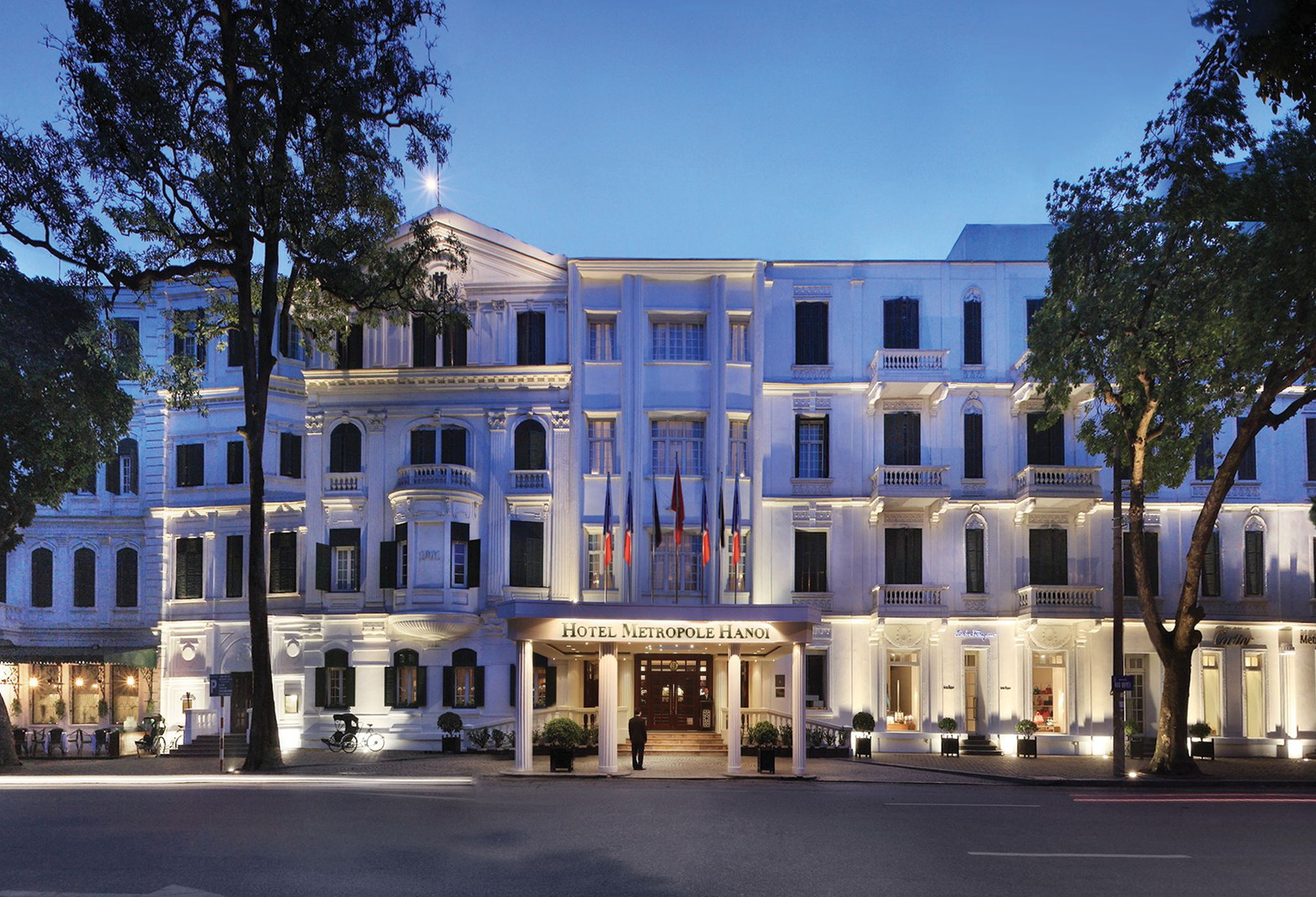 Sofitel Legend Metropole is both a famed 5-star hotel and a historic attraction in its own right
Sofitel Legend Metropole is both a famed 5-star hotel and a historic attraction in its own right
Most of the best accommodation options are located in the city center, particularly in Hoan Kiem District or near West Lake, as these areas provide convenient access to various attractions.
If you’re looking for prime real estate in the Old Quarter and want to experience local life, there are numerous Airbnbs and homestays available in various styles to enhance your visit.
Read our Hanoi accommodation guide for the latest updates on hotels and other lodging options.
How To Get There
Noi Bai International Airport is the second busiest airport in Vietnam. It takes about 40 minutes to reach the city center from the airport. You can arrange a private car via ride-hailing services like Grab and Be, which offer estimated prices for your journey. Alternatively, reputable taxi companies such as Mai Linh Taxi and Taxi CP also provide service and accept credit card payments.
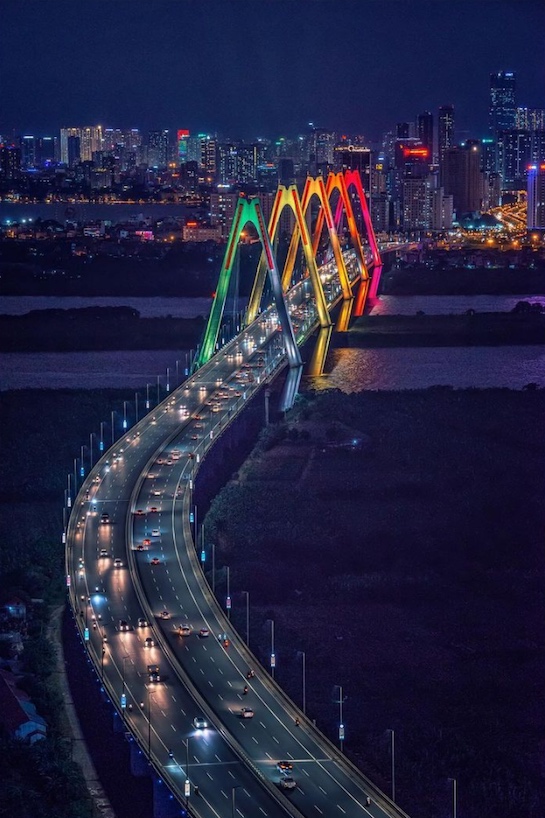 Nhat Tan Bridge connects Hanoi airport to the city center - Photo: Prabu Mohan @the_prabster
Nhat Tan Bridge connects Hanoi airport to the city center - Photo: Prabu Mohan @the_prabster
For a more economical option, you can use the airport shuttle bus service provided by Vietnam Airlines. This service operates several routes between Noi Bai Airport and Hoan Kiem District, with a single ticket costing just VND40,000 (under USD 2).
Traveling between Hanoi and other cities is also straightforward, with numerous transportation options available. For nearby areas, you can choose from private car services, shuttle buses, and trains, depending on your budget and personal preferences.
Food to Try
When in Hanoi, you cannot miss the opportunity to indulge in the city’s diverse culinary offerings. Renowned for meticulous cooking techniques and an array of local ingredients, Hanoi presents a stunning variety of dishes that will elevate your dining experience. The city is teeming with food stalls and restaurants open day and night, with each dish telling a unique story.
Phở (beef noodles) is a quintessential dish you must try, with renowned establishments such as Pho Ly Quoc Su (Ly Quoc Su Street), Pho Gia Truyen (Bat Dan Street), Pho Vui (Dinh Liet Street), and Pho Thin (Lo Duc Street) offering authentic flavors. There are also many traditional dishes that appeal to both tourists and local residents alike, such as Cha Ca (grilled fish with turmeric and dill), Bun Cha (grilled pork with noodles), Banh Cuon (stuffed pancakes), and Bun Rieu Oc (crab paste and snail vermicelli soup). Additionally, don’t miss the chance to sample an iconic Banh Mi and Vietnamese coffee for an authentic breakfast experience.
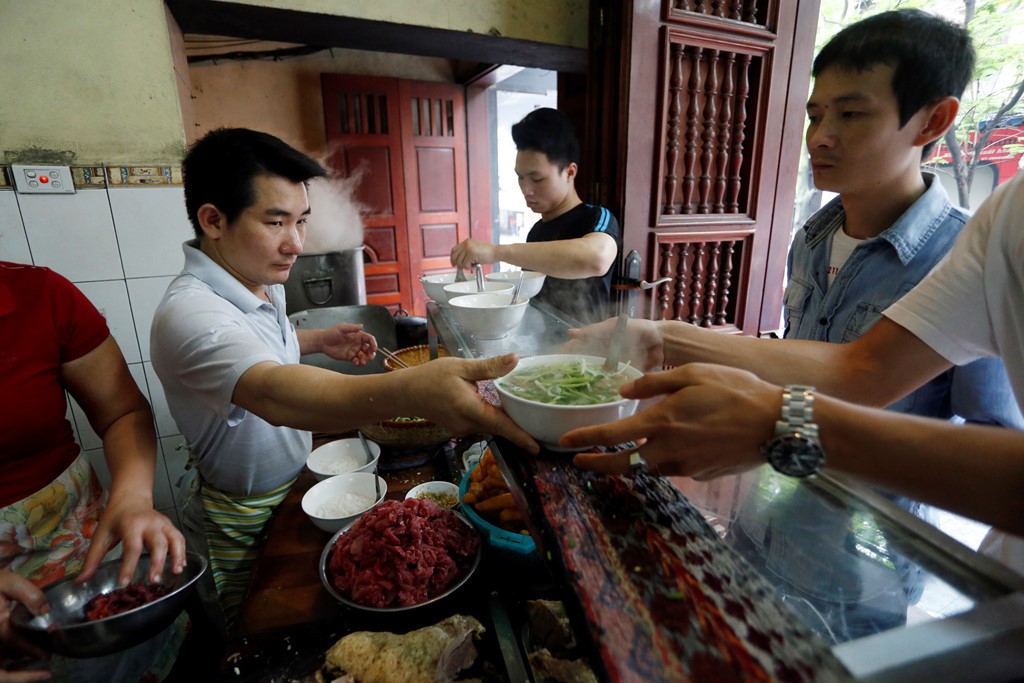 Pho Bat Dan - a culinary legend - Photo: kenh14.vn
Pho Bat Dan - a culinary legend - Photo: kenh14.vn
You can find many traditional dishes within the Old Quarter and Hoan Kiem District; feel free to approach friendly locals for recommendations on where to eat. Besides long-established food stalls along the streets and in small alleys, contemporary fusion cuisine in modern restaurants provides a delightful dining experience. Despite the culinary diversity, one characteristic unites every dish in Hanoi: the artful balance of ingredients resulting in layers of exquisite flavors.
| 16°C | ||
| Humidity | 75% | |
| Wind | 2.9 km/h | |
| Sunrise | 23:25 | |
Hanoi Travel Guide
Seasonal Guides
Best Of Hanoi
See, Eat, Sleep, Shop, Stay - The Best of Hanoi
Frequently asked questions
What local food must I try in Hanoi?
Exploring local dishes is one of the most exciting parts of traveling to Hanoi. The city's cuisine is diverse, delicious, and budget-friendly. Here are some must-try dishes:
- Bun cha (try Bun cha Huong Lien, Bun cha Dac Kim, or Bun cha Sinh Tu)
- Cha ca (visit Cha ca La Vong or Cha ca Thang Long)
- Pho (don’t miss Pho 10 Ly Quoc Su or Pho Bat Dan)
- Xoi xeo (check out Xoi xeo co May - Hang Bai, Xoi xeo co Tuyet, or local street vendors)
Discover more about Hanoi's food and cuisine.
How long does it take to get from the airport to downtown?
The journey from Hanoi Airport to the Old Quarter typically takes about 30 minutes, depending on traffic conditions. You can easily find Grab taxis at the airport, with fares averaging around $15 each way. For a more local experience, consider using ride-hailing apps like Grab, or pre-booking a shuttle service for convenience.
When is the best time to visit Hanoi?
The ideal times to visit Hanoi are during spring (February to late April) and fall (late September to early December) when the skies are clear and the weather is delightful. Summers can be intensely hot, with a risk of tropical storms, while winters can be rather chilly. It's best to steer clear of the Tet holiday (Lunar New Year), as many shops and services close during this time.


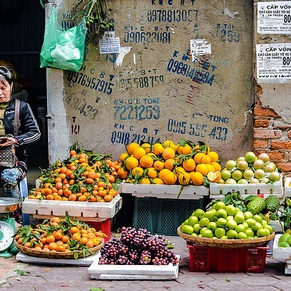 Hanoi Old Quarter - The 36 Legendary Streets
Hanoi Old Quarter - The 36 Legendary Streets
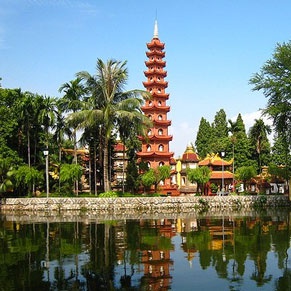 Tran Quoc Pagoda
Tran Quoc Pagoda
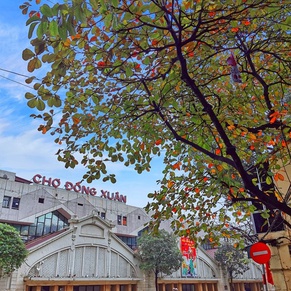 Dong Xuan Market
Dong Xuan Market
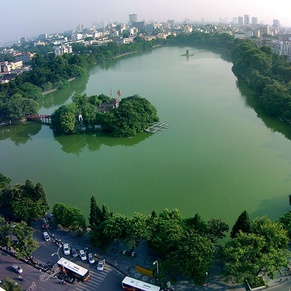 Hoan Kiem Lake
Hoan Kiem Lake
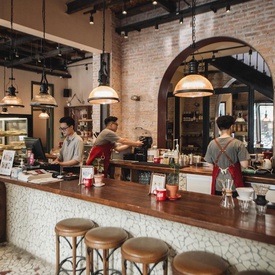
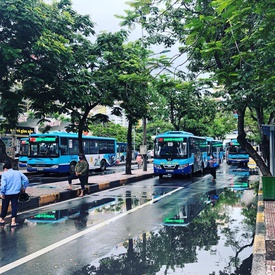
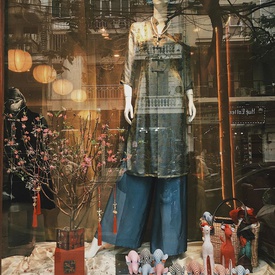
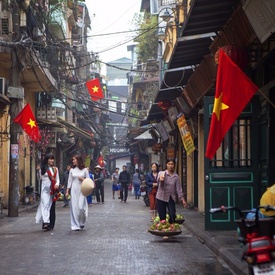
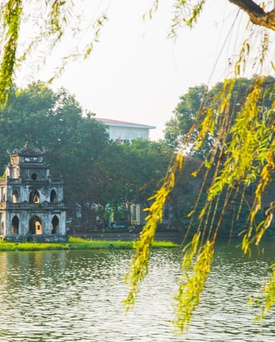 Hanoi in January
Hanoi in January
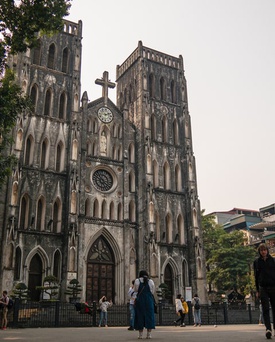 Hanoi in February
Hanoi in February
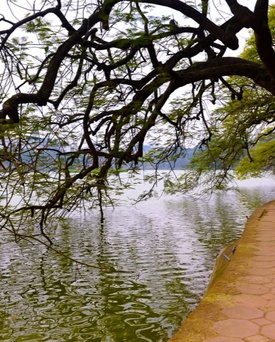 Hanoi in March
Hanoi in March
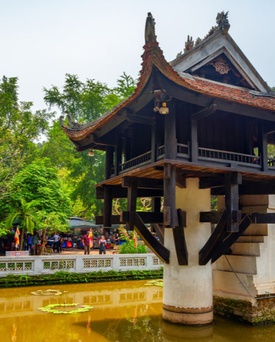 Hanoi in April
Hanoi in April
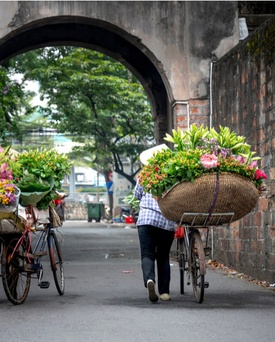 Hanoi in May
Hanoi in May
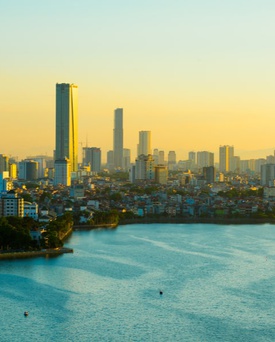 Hanoi in June
Hanoi in June
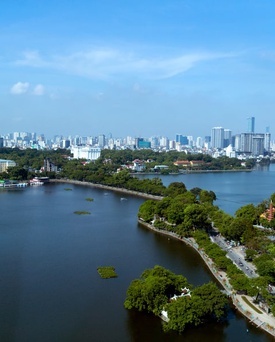 Hanoi in July
Hanoi in July
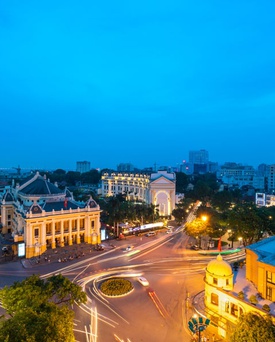 Hanoi in August
Hanoi in August
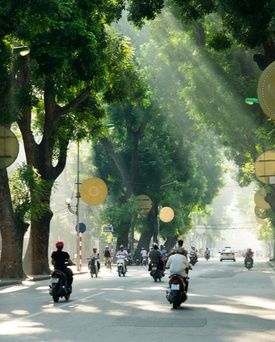 Hanoi in September
Hanoi in September
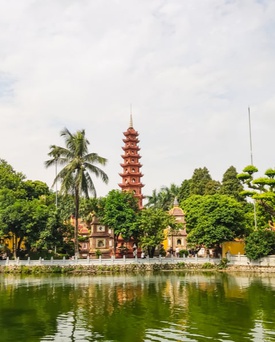 Hanoi in October
Hanoi in October
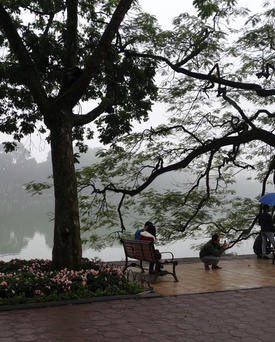 Hanoi in November
Hanoi in November
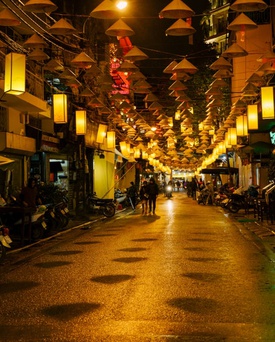 Hanoi in December
Hanoi in December
